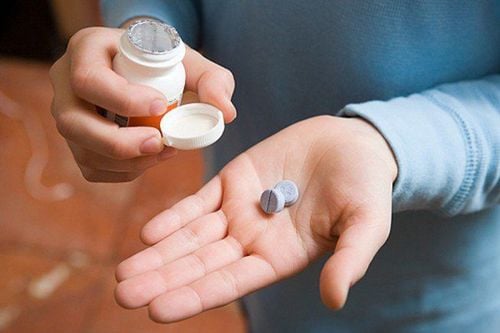This is an automatically translated article.
Chlorambucil is used to treat certain cancers such as leukemia and lymphoma. Chlorambucil is a chemotherapy drug that works by slowing or stopping the growth of cancer cells.
1. What is Chlorambucil?
Chlorambucil is used to treat certain cancers such as leukemia and lymphoma. It belongs to a group of drugs known as alkylating agents. Chlorambucil works by slowing or stopping the growth of cancer cells.
Chlorambucil is indicated in the following cases:
Used to treat lymphoma, also known as Hodgkin's lymphoma, chronic lymphocytic leukemia, cutaneous T-cell lymphoma, Waldenstrom's macroglobulinemia. Chlorambucil is contraindicated in the following cases:
Severe infections Acute leukemia Decreased bone marrow function Anemia Decreased blood platelets Low white blood cell count Low neutrophil count Decrease in cell count Lymphocytes in the blood Low seizure threshold Interstitial pneumonia Pulmonary fibrosis Liver damage and hepatitis Nephrotic syndrome Convulsions Pregnancy Pregnant women Malignant cancer metastasized to bone marrow People allergic to nitrogen mustard ( Nitrogen Mustards).

Thuốc Chlorambucil cần được sử dụng phù hợp với bệnh trạng
2. Precautions when taking Chlorambucil?
Chlorambucil is to be taken by mouth as directed by your doctor, usually once daily. And drink plenty of water to help prevent chlorambucil side effects. Do not increase the dose or take the medicine regularly without consulting your doctor. Because chlorambucil can be absorbed through the skin and lungs and can cause harm to an unborn baby, it should not be used by women who are pregnant or planning to become pregnant. During the use of the drug, tests such as complete blood count, uric acid level should be done.
3. Chlorambucil side effects
Tell your doctor right away if you have any side effects of Chlorambucil, such as:
Easy bleeding or easy bruising, mouth sores, tremors, muscle problems (such as seizures) , stiffness, weakness) Numbness or tingling of hands or feet, mood changes (such as confusion, hallucinations) Signs of liver problems (such as nausea/vomiting that won't stop, boredom) eating, abdominal pain, yellowing of the eyes or skin, dark urine), cessation of menstruation in women. In addition, an allergic reaction is one of the very serious side effects. Get medical help right away if you have any of these symptoms: rash, itching or swelling anywhere especially on your face, tongue or throat, severe dizziness, trouble breathing.
4. Measures to prevent side effects of the drug Chlorambucil
Share with your doctor a list of all the medicines you take such as prescription or over-the-counter medicines and herbal products. Tell your doctor about certain medications you are allergic to or any other allergies. Also, tell your doctor your medical history, especially of: Gout, liver disease, bleeding, or blood problems. During your treatment with Chlorambucil, do not get vaccinated without your doctor's approval. Before surgery, tell your doctor or dentist that you are being treated with Chlorambucil. Breastfeeding while using Chlorambucil is not recommended. Consult your doctor before breast-feeding during treatment with Chlorambucil.

Người bệnh nên dùng thuốc Chlorambucil theo đúng hướng dẫn
5. What to do if you forget to use Chlorambucil?
It is important to take each dose of Chlorambucil on schedule. If you miss a dose, ask your doctor right away for a new dosing schedule. Do not take a double dose of Chlorambucil to make up for the missed dose.
6. What to do when using an overdose of Chlorambucil?
If you have overdosed on Chlorambucil and have severe symptoms such as fainting or difficulty breathing, call 911.
7. How to store Chlorambucil?
Store Chlorambucil in the refrigerator, away from light and moisture, but do not freeze the medicine. Keep Chlorambucil medicine away from children and pets.
Do not flush Chlorambucil down the toilet or down the drain unless instructed to do so. Dispose of Chlorambucil properly when it has expired or is no longer needed.
Please dial HOTLINE for more information or register for an appointment HERE. Download MyVinmec app to make appointments faster and to manage your bookings easily.
Reference link: webmd.com












